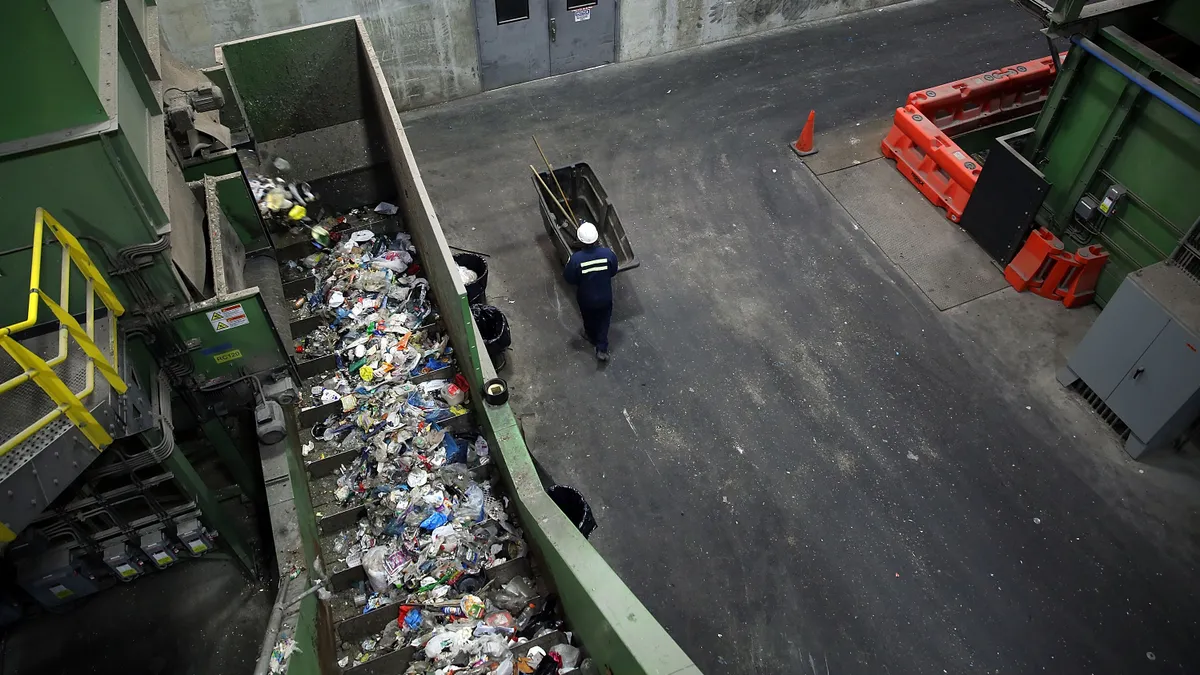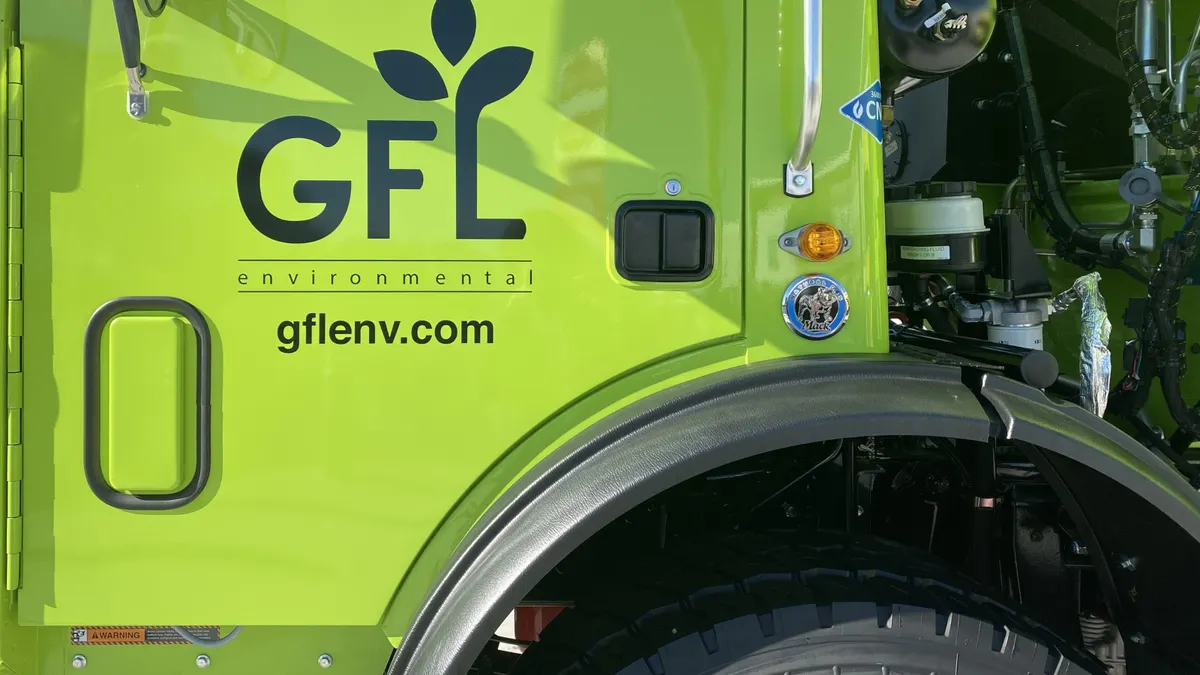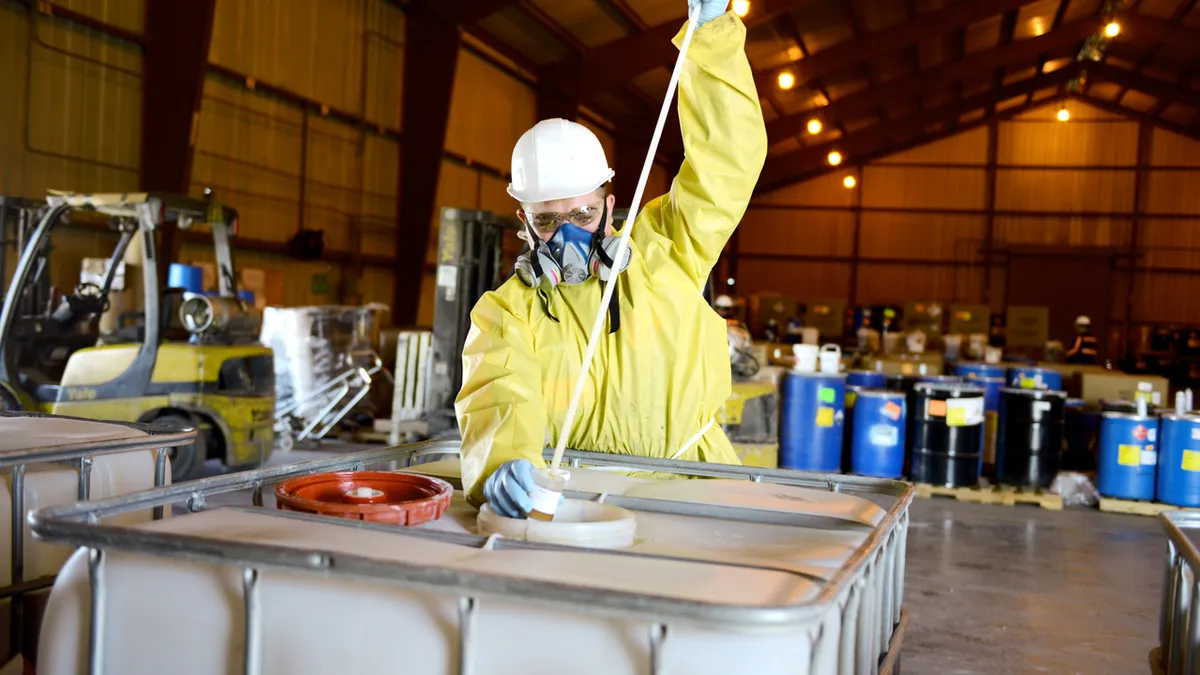Balcones Recycling is now one of largest privately held recycling companies in the industry and is eyeing future plans to scale and grow.
Balcones Resources and Sims Municipal Recycling announced in November that they would merge under the name Balcones Recycling. It operates under Circular Services, a company of Closed Loop Partners that launched in 2022 with plans to offer a range of recycling services. Just a month after Circular Services announced the SMR/Balcones merger, it also acquired Illinois-based Midwest Fiber, which had five recycling facilities.
Tom Outerbridge, previously SMR’s president, is now CEO of Balcones Recycling. Adam Vehik, previously CEO of Balcones Resources, is now president of Balcones Recycling.
Outerbridge and Vehik say they are “talking and coordinating constantly” so the merged companies are able to draw from each other’s years of expertise and familiarity with managing recyclables, buying and selling commodities and making strategic decisions about MRF operations and contracts.
The company’s combined footprint now serves more than 13 million people and processes more than 1 million tons of recyclables each year, with major municipal contracts to operate or support recycling operations in more than 14 cities.
The two talked with Waste Dive about Balcones’ future plans and its focus on staying a “pure-play” company focused on recycling.
This conversation was edited for clarity and brevity.
WASTE DIVE: Closed Loop acquired Balcones in 2019 and SMR in 2022. How are things going now that you’ve had a few months to work together under Closed Loop’s Circular Services umbrella? What does this merger look like operationally and from a practical standpoint?
TOM OUTERBRIDGE: It's going well. There's a lot to it because [SMR] was a long-established public company with their own policies and procedures and methods. [Balcones] is coming from a private company background, so it's just about aligning and taking the best of both worlds to put in place a common platform for us all.
Operations is a nitty-gritty but fundamental and huge part of the business. Adam’s got people on his team with a lot more experience with a particular equipment vendor, while we have a lot of experience with a different baler manufacturer, for example, so it’s about comparing notes and methodologies for doing preventative maintenance. There's a lot of learning, and there’s a lot of making sure we’re all not stuck in our ways but being open to seeing a better way.
Since then, the acquisition of Midwest Fiber has added to the geographic breadth of commodity sales. Midwest Fiber was a much smaller company, but highly entrepreneurial. So we’re making sure we are also learning from things that they do as a smaller company.
ADAM VEHIK: Both [Balcones and SMR] were in a very similar culture as far as a focus on safety, material quality, the partnerships with municipalities and commercial customers and in developing our people. We all want to make sure we hire the right people that fit that culture. It was really seamless integration between our organizations because the cultures were so similar. We spent some time here in the last nine months really just understanding each other's practices and sharing best practices. I think there's a lot of benefit to sharing those best practices and it's been a really good partnership so far.
Balcones is now operating five of Midwest’s recycling facilities. What other MRF projects can we expect from the company in 2024?
VEHIK: Our San Antonio facility is opening later this year in Q2, so that's going to be a really big launch we're excited about. It's going to be a 50-ton-an-hour system in a brand-new, 110,000-square-foot building. It's a big recycling campus with some employee amenities. It's a really great thing for the City of San Antonio to have in their backyard, and they've been a great partner to work with.
We're also launching a second facility on behalf of the City of Phoenix later this summer, also in Q2. There are two facilities we will operate in Phoenix. One we're operating on right now, which we took that contract over at the beginning of 2023. We will be doing a retrofit there a little later this year, hopefully.
The second facility, the 27th Avenue facility, is going to come online here in another six months or so. They turned off the system about two years ago and ripped everything out, then started from scratch with a new Machinex system. That should open up some capacity for some surrounding municipalities outside of Phoenix to contribute some volumes. We think that their recycling footprint will grow for that region, which is great because the City of Phoenix has been on the vanguard of single-stream recycling for the last 30 years.
We're also building a new MRF in the Dallas-Fort Worth metroplex that will come online here in two years that will be like the San Antonio facility — 120,000 square feet, brand new system. We haven't decided on the [equipment] vendor, but that's in the works. The Dallas-Fort Worth area is one of the largest metroplexes in the country, but they’re currently underserved. We're excited to be able to help that whole community grow.
What’s Balcones Recycling’s long-term strategy for its recycling operations with respect to MRF improvements and expansions, as well as municipal contracts?
OUTERBRIDGE: We are constantly looking at upgrade opportunities, and we have some facilities that have 10-year-old, sometimes 15-year-old equipment we're in the process of replacing for improved performance. The new generation of equipment offers increased capacity, increased quality and increased recovery. Because of that, upgrades are a very significant part of the business — think of how adding an optical sorter to catch your polypropylene can change things.
When we oversaw an upgrade on behalf of the Solid Waste Authority of Palm Beach [Florida] we saw an increased throughput from 15 to 20 tons per hour, which has a big impact on operating costs.
As far as [municipal contracts], we obviously are comfortable in that space of operating publicly owned facilities, and it’s a fair amount of our business. We don't dictate when those come out for bid, but once that comes out and we feel it's a good fit for us — either geographically or timing wise — those will always be options we look at.
For new builds, that’s a unique situation because a bunch of conditions have to come together. That means figuring out whether there's a supply and whether there's a window for a new entity to compete for the tons. You’ll see contracts come out that say you need to be prepared to accept material by, say, July 1. If we don't have a facility, that's not a new build opportunity. But I think there are those circumstances where it works out, and San Antonio is an example.
Strategic acquisitions are another aspect. Midwest Fiber was looking to become part of a bigger organization. Overall, [acquisitions] have to be evaluated based on geography and the quality of the equipment and the quality of the management team. We're not out there just hoovering up every available asset.
VEHIK: We have a stakeholder group whose mission is to capture more recyclables out there. They want a true circular economy, where this material stays in the system. Our mission is to go out and expand our footprint and cast a wider net to be able to capture more recyclables. It’s easier said than done. I think you have to be opportunistic on how and when it happens.
That's why we've been open to new RFPs to build new facilities, RFPs to run municipal facilities and acquisitions where there's a good culture fit and they believe in that same mission that we have. There's not a tremendous amount of those opportunities out there. But we've been pleasantly surprised by the number of municipalities who want the type of relationship that we have — New York City, the City of Austin and the City of Phoenix are some examples of a good collaboration.



















